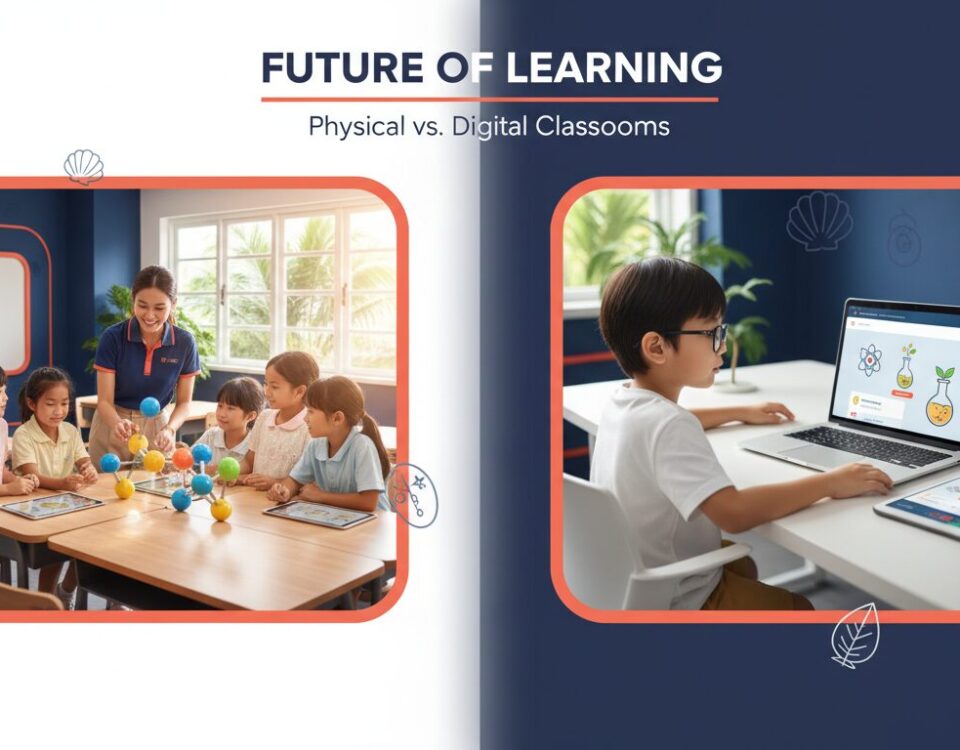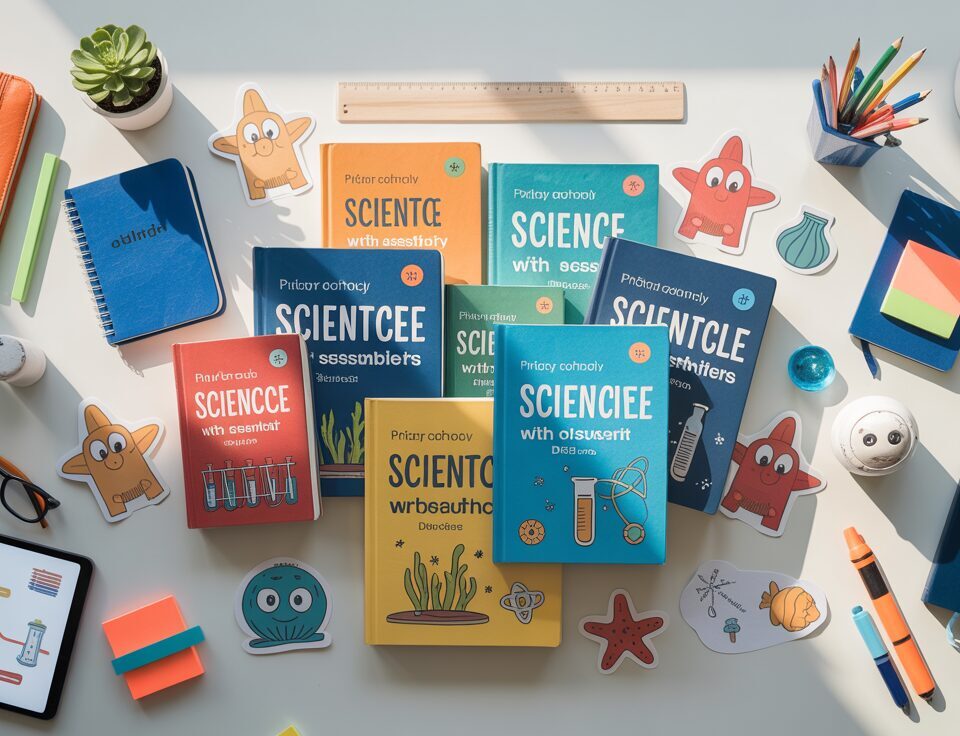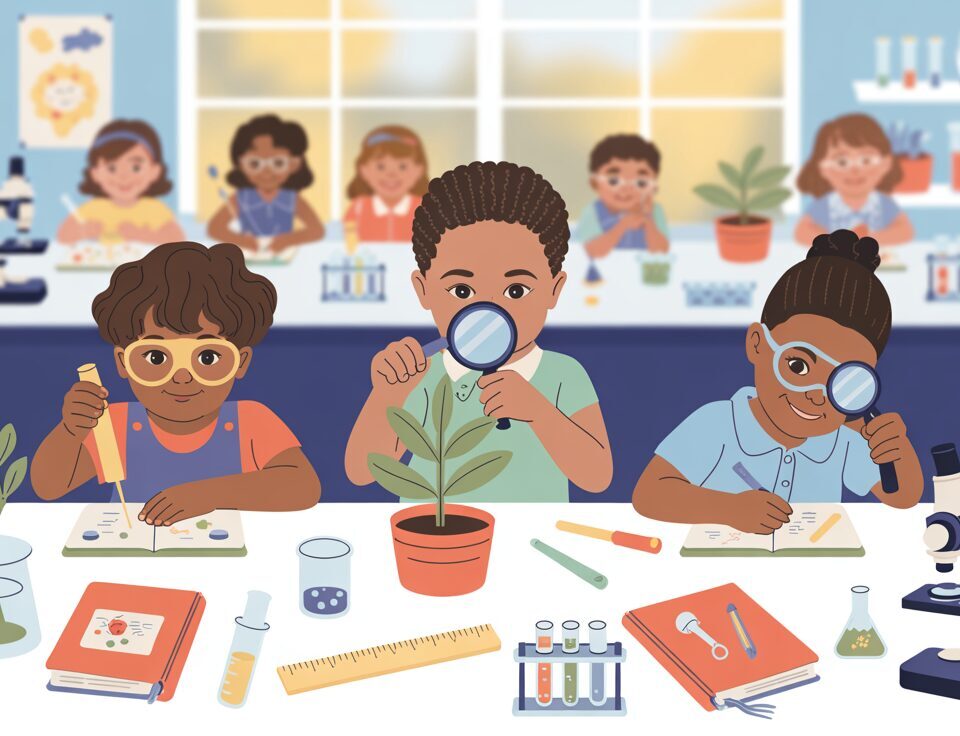
Top 8 Critical Mistakes in PSLE Science & Expert Strategies to Avoid Them
October 30, 2025
Picture-Description Masterclass: Essential Techniques for PSLE Chinese Oral Success
November 1, 2025Table Of Contents
- Introduction
- Teacher Qualifications and Experience
- Teaching Methodology and Learning Approach
- Curriculum Alignment with School Syllabus
- Class Size and Personalized Attention
- Track Record and Success Stories
- Learning Environment and Facilities
- Emphasis on Emotional Well-being
- Practical Considerations
- Conclusion
Selecting the right science tuition centre for your child in Singapore can be a pivotal decision that shapes their academic journey and relationship with learning. With the competitive educational landscape and the importance placed on PSLE results, many parents feel the pressure to find the perfect supplementary education provider. However, the best choice isn’t simply about drilling exam techniques—it’s about finding a nurturing environment that fosters genuine understanding, curiosity, and confidence in the sciences.
Science, with its abstract concepts and application-based questions, requires a special approach to teaching and learning. The right tuition centre should not only strengthen your child’s academic foundation but also nurture their natural curiosity and problem-solving abilities. This comprehensive checklist will guide you through the essential factors to consider when selecting a science tuition centre in Singapore, helping you make an informed decision that supports your child’s holistic development.
Teacher Qualifications and Experience
The quality of education your child receives is directly influenced by the qualifications and expertise of their teachers. When evaluating science tuition centres, consider these important aspects of teacher credentials:
Academic Qualifications: Look for centres with MOE-trained educators who possess relevant degrees in science disciplines. Teachers with strong academic backgrounds typically have a deeper understanding of scientific concepts and can explain complex topics more effectively. At Seashell Academy by Suntown Education Centre, all science educators are MOE-trained and possess specialized knowledge in primary school science curriculum.
Teaching Experience: Experienced teachers have encountered various learning challenges and developed effective strategies to address them. They can identify common misconceptions and provide targeted guidance. Inquire about the number of years teachers have been teaching science specifically at the primary school level.
Understanding of Examination Requirements: Teachers should be intimately familiar with the latest PSLE science format and assessment objectives. This knowledge enables them to prepare students effectively for examinations while building genuine understanding rather than mere memorization.
Passion for Teaching: Beyond qualifications, great science teachers demonstrate enthusiasm that inspires curiosity and engagement. During centre visits, observe how teachers interact with students and whether they create an environment that encourages questions and exploration.
Teaching Methodology and Learning Approach
The teaching methodology employed by a science tuition centre significantly impacts how your child will engage with and understand scientific concepts.
Interactive vs. Lecture-Based Learning: Science is best learned through hands-on experiences and active participation. Centers that incorporate experiments, demonstrations, and interactive activities tend to foster better understanding and retention of concepts. Ask about the balance between theoretical teaching and practical application in their lessons.
Structured Learning Plans: Effective science tuition should follow a coherent curriculum that builds knowledge progressively. At Seashell Academy by Suntown Education Centre, the unique Seashell Method provides structured learning plans that ensure concepts are introduced in a logical sequence, with each lesson building upon previous knowledge.
Visual Learning Tools: Mind-mapping and visual learning aids help students organize scientific information and see connections between different concepts. These approaches are particularly helpful for understanding complex systems in biology and the relationships between different scientific principles.
Application-Based Learning: Science education should extend beyond memorizing facts to applying concepts in real-world contexts. The best tuition centres emphasize how scientific principles relate to everyday phenomena, helping students develop critical thinking and analytical skills that are essential for higher-order questions in the PSLE.
Gamified Elements: Learning through games and challenges can increase engagement and motivation. Ask whether the centre incorporates gamified elements that make learning enjoyable while reinforcing important concepts.
Curriculum Alignment with School Syllabus
The tuition centre’s curriculum should complement and enhance what your child is learning in school without causing confusion or overwhelm.
MOE Syllabus Alignment: Ensure that the centre’s teaching materials and approach align with the latest MOE science curriculum. This alignment ensures that supplementary learning reinforces school lessons rather than contradicting them.
Pace and Timing: The ideal tuition programme should stay slightly ahead of or in sync with the school curriculum, providing students with a preview of upcoming topics or immediate reinforcement of recently introduced concepts. This approach builds confidence and allows students to participate more actively in school lessons.
Supplementary Materials: Quality science tuition centres develop their own materials that simplify complex concepts and provide additional practice beyond what’s available in school textbooks. These resources should be well-organized, visually appealing, and designed to address common learning challenges.
Assessment Preparation: While examination preparation is important, it should not be the sole focus. Look for centres that balance exam techniques with fundamental concept mastery, ensuring students can tackle both familiar and novel questions.
Class Size and Personalized Attention
The student-to-teacher ratio significantly impacts the level of personalized attention your child will receive during science tuition.
Small Group Advantage: Smaller class sizes allow teachers to monitor individual progress closely and provide targeted feedback. In science education, where misconceptions can easily develop, personal guidance is particularly valuable. Seashell Academy by Suntown Education Centre maintains small class sizes to ensure each student receives the attention they need to excel.
Individual Learning Paths: Every child has unique strengths, weaknesses, and learning styles. Quality tuition centres recognize these differences and adapt their teaching approaches accordingly. Inquire whether the centre conducts initial assessments to identify your child’s specific needs and how they customize support based on these findings.
Feedback Mechanisms: Regular progress updates help parents understand their child’s development and areas requiring additional support. Ask about how the centre tracks student progress and communicates this information to parents.
Question Opportunities: Science learning thrives on curiosity and inquiry. In smaller classes, students have more opportunities to ask questions, seek clarification, and engage in meaningful discussions that deepen their understanding.
Track Record and Success Stories
While past performance doesn’t guarantee future results, a centre’s track record can provide insights into its effectiveness.
Academic Results: Reputable science tuition centres should be willing to share information about their students’ achievements, including improvement rates and PSLE scores. However, look beyond raw numbers to understand how students of varying abilities have progressed under their guidance.
Testimonials and Reviews: Feedback from current and former students and their parents can offer valuable perspectives on the learning experience. Look for specific mentions of how the centre has helped improve understanding, confidence, and interest in science.
Long-term Impact: The best science education instills not just knowledge but also a genuine interest in scientific inquiry. Consider centres that can demonstrate how their approach fosters lasting curiosity and confidence in the subject.
Consistency: A centre with a consistent record of helping students improve over several years typically indicates reliable teaching methods and quality control measures.
Learning Environment and Facilities
The physical environment and available resources can significantly impact your child’s learning experience.
Classroom Setup: Science learning benefits from flexible spaces that can accommodate both focused individual work and collaborative activities. Visit the centre to observe whether the classroom environment is conducive to different learning modes.
Teaching Resources: Quality science tuition should incorporate models, charts, specimens, and simple experimental equipment that help visualize abstract concepts. These hands-on resources make learning more engaging and memorable.
Technology Integration: Modern science education often utilizes digital resources such as interactive simulations, videos, and online learning platforms. Ask about how the centre incorporates technology to enhance understanding of scientific concepts.
Safety Measures: For centres that conduct practical activities or experiments, proper safety protocols should be in place to protect students while providing valuable hands-on learning experiences.
Emphasis on Emotional Well-being
Academic excellence should not come at the cost of your child’s emotional health and love for learning.
Positive Learning Environment: Observe whether the centre fosters a supportive atmosphere where students feel comfortable asking questions and making mistakes. Learning science involves trial and error, and students should feel safe exploring concepts without fear of judgment.
Balanced Approach to Achievement: The best science tuition centres focus on sustainable growth rather than short-term results achieved through excessive pressure. At Seashell Academy by Suntown Education Centre, students are nurtured like pearls forming in a protective seashell—given the time and support to develop naturally while being shielded from unnecessary stress.
Confidence Building: Science can be challenging, and many students develop anxiety around the subject. Quality tuition should build confidence through appropriately challenging activities that provide opportunities for success while gradually extending capabilities.
Motivation Strategies: Look for centres that inspire intrinsic motivation through fascinating demonstrations, real-world connections, and celebrating progress. These approaches foster a genuine love for science that extends beyond examination requirements.
Practical Considerations
While educational quality should be your primary concern, practical factors also play a role in ensuring consistent attendance and minimizing stress.
Location and Accessibility: A conveniently located centre reduces travel time and makes regular attendance more manageable. Consider proximity to your home or school and transportation options.
Schedule Flexibility: Check whether the centre offers multiple time slots that can accommodate your child’s other activities and provide options if schedule conflicts arise.
Make-up Lesson Policies: Inquire about policies for missed lessons due to illness or other unavoidable circumstances. Flexible make-up options help ensure your child doesn’t fall behind.
Communication Channels: Clear and accessible communication between parents, students, and teachers facilitates better support for learning. Ask about how the centre maintains regular updates and addresses parent questions or concerns.
Trial Lessons: Many quality centres offer trial lessons that allow your child to experience their teaching approach before making a commitment. This opportunity helps assess whether the centre’s style resonates with your child’s learning preferences.
Conclusion
Choosing the right science tuition centre for your child requires careful consideration of multiple factors beyond just academic credentials. The ideal centre should provide a balanced approach that builds strong scientific foundations while nurturing curiosity, confidence, and a genuine love for learning.
At Seashell Academy by Suntown Education Centre, we understand that effective science education combines rigorous academic instruction with emotional support. Our unique Seashell Method ensures students develop deep conceptual understanding through structured learning plans, interactive lessons, and personalized coaching from experienced MOE-trained educators.
We believe that every child deserves to learn in an environment that protects their well-being while challenging them to reach their potential. Just as pearls form gradually within the protective environment of a seashell, we provide the ideal conditions for your child to develop into a confident, knowledgeable science learner.
Take the time to visit potential centres, ask detailed questions about their approach, and observe classes if possible. Most importantly, involve your child in the decision-making process—their comfort and connection with the learning environment and teachers will significantly impact their motivation and progress.
Remember that the best science tuition centre isn’t necessarily the one with the most impressive marketing materials or the highest fees. It’s the one that aligns with your child’s learning needs, fosters genuine interest in scientific inquiry, and provides the right balance of challenge and support to help them thrive academically and emotionally.
Ready to explore how Seashell Academy by Suntown Education Centre can nurture your child’s science learning journey? Contact us today to schedule a consultation or visit our centre to learn more about our unique approach to primary science education.





